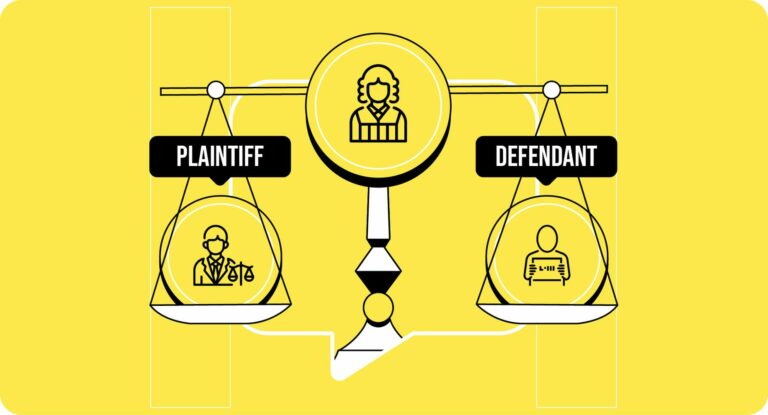Whiplash injuries can range from mild discomfort to debilitating pain, often affecting your ability to work. Recovery times vary depending on the severity of the injury, your overall health, and the treatment you receive. Knowing how long to take off work can protect your physical well-being and strengthen your car accident claim for lost wages and other damages.
Understanding Whiplash Injuries
Whiplash is a soft tissue injury caused by the rapid back-and-forth movement of the neck, often referred to as a “whipping” motion. This injury is commonly associated with rear-end car accidents but can also occur in other types of collisions. Whiplash affects the muscles, tendons, and ligaments in the neck, leading to pain and discomfort.
Common symptoms of whiplash include neck pain, stiffness, and reduced range of motion. Many individuals also experience headaches, dizziness, and tenderness in the shoulders or upper back. These symptoms can range from mild to severe, depending on the force of the collision and the individual’s health condition.
Factors That Influence Recovery Time for Whiplash
The time it takes to recover from whiplash depends on several factors, including the severity of the injury, the individual’s health, and access to medical care. Below are some of the key factors that can affect recovery time:
- Severity of the injury – Mild cases of whiplash may heal within a few days or weeks with rest and conservative treatment. However, severe injuries involving torn ligaments or chronic pain can take months or even longer to resolve. The extent of damage to the soft tissues in the neck significantly impacts recovery time.
- Age and overall health – Older adults or individuals with pre-existing health conditions, such as arthritis or a history of neck injuries, may experience prolonged recovery times. These factors can slow the body’s healing process and make it harder to regain full range of motion.
- Access to medical care – Receiving prompt treatment, such as physical therapy or chiropractic care, can significantly speed up recovery. Delayed treatment may allow symptoms to worsen and prolong the healing process, emphasizing the importance of seeking medical attention early.
- Level of physical activity – Overexertion during recovery can aggravate whiplash symptoms and delay healing. Avoiding strenuous activities and following your doctor’s recommendations are critical to a faster recovery.
- Treatment plan adherence – Following a prescribed treatment plan, including physical therapy and home exercises, plays a major role in recovery. Failure to follow through with treatment can lead to lingering symptoms and chronic pain.
- Psychological factors – Stress, anxiety, or depression following an accident can negatively affect recovery. Emotional health can influence physical healing, so addressing these concerns is important for overall recovery.
Average Time Off Work for Whiplash Injuries
The average recovery time for whiplash depends on the severity of the injury. Mild cases often require only a few days off work, depending on the type of work you do, allowing individuals to return to their normal routines quickly. Moderate injuries may necessitate several weeks of rest and rehabilitation to alleviate symptoms and restore function.
Minor Whiplash Cases
In minor cases of whiplash, individuals typically experience mild discomfort and stiffness. These symptoms often resolve within a few days to two weeks with rest, over-the-counter pain relief, and gentle stretches. Many people with minor whiplash are able to return to work relatively quickly, especially if their job does not require strenuous physical activity.
However, even minor whiplash should not be ignored. Seeking medical attention ensures that there are no underlying complications and provides documentation in case symptoms worsen or a personal injury claim is necessary. Taking these precautions allows for a smooth recovery and helps prevent long-term issues.
Severe Whiplash Cases
Severe whiplash can result in chronic pain, reduced mobility, and ongoing medical treatment, significantly extending recovery time. These cases often require weeks or months of physical therapy, chiropractic care, or even surgical intervention to address ligament damage or other complications. Individuals with severe whiplash may need extended time off work to focus on their recovery.
Severe cases can also impact an individual’s ability to perform job duties, especially in physically demanding roles. Medical documentation and input from healthcare providers are essential to determining when it is safe to return to work. This ensures that individuals do not risk aggravating their injuries by resuming activities too soon.
Pro Tip
If your employment is dependent on your physical abilities, your car accident lawyer can demand compensation for vocational rehabilitation if you are no longer able to perform the work you did before your injury.
Workers Recovering From Whiplash are Protected
California Labor Code § 132a prohibits employers from discriminating against workers recovering from injuries, including whiplash sustained in an accident. This law ensures that injured employees cannot be terminated, demoted, or otherwise penalized for taking time off to recover. Workers have the right to return to their jobs after recovering without fear of retaliation or mistreatment.
Employers are also required to accommodate reasonable recovery time for injured employees. This may involve modifying job duties, providing flexible schedules, or allowing the worker to work from home if feasible. These accommodations enable employees to focus on their recovery while maintaining their job security and income.
Workers’ Compensation for Whiplash
Workers’ compensation benefits may be available if you suffered whiplash while performing your job duties. California’s Division of Workers’ Compensation system provides medical benefits, wage replacement, and rehabilitation services to employees injured in work-related accidents. Filing a workers’ compensation claim allows you to access these benefits without needing to prove fault for the injury.
To qualify for workers’ compensation, you must demonstrate that your whiplash injury occurred during the course of your employment. This could include injuries sustained in a car accident while driving for work purposes, such as making deliveries or attending job-related meetings. Once your claim is approved, you may receive coverage for medical expenses, lost wages, and temporary or permanent disability benefits.
Filing a Workers’ Compensation Claim for Whiplash
- Report the injury to your employer immediately – Informing your employer promptly ensures the incident is documented and begins the claims process.
- Seek medical treatment from an approved provider – In California, workers’ compensation requires employees to visit a doctor authorized by their employer’s insurance network.
- Complete the necessary paperwork – Submit a DWC-1 form, which outlines the details of your injury and how it occurred, to your employer.
Workers’ compensation is designed to help injured employees recover without facing financial hardship. If your claim is denied or you encounter delays, a lawyer can help you appeal the decision and ensure you receive the benefits you deserve.
Managing Recovery and Returning to Work
Following medical advice and avoiding activities that worsen symptoms are critical for recovering from whiplash and safely returning to work. Attempting to resume normal activities too soon can delay healing and increase the risk of re-injury. Below are practical tips for managing your recovery:
Recovery and Return-to-Work Tips
- Schedule follow-up visits with your doctor to track progress – Regular checkups ensure your treatment plan is effective and allows your doctor to address any lingering symptoms or concerns.
- Use ergonomic equipment to reduce strain when returning to work – Proper desk chairs, keyboards, and other ergonomic tools can prevent additional neck or shoulder strain.
- Gradually resume activities to avoid re-injury – Start with light tasks and slowly transition back to your full workload as your symptoms improve.
- Perform prescribed physical therapy exercises – These exercises strengthen your neck muscles and improve your range of motion, aiding in recovery.
- Take regular breaks during the workday – Short breaks to stretch or rest can prevent muscle fatigue and ease discomfort while at work.
- Communicate with your employer about accommodations – Be open about your recovery needs, such as adjusted hours or modified tasks, to ensure a smoother transition back to work.
- Avoid heavy lifting or repetitive motions – These activities can strain the neck and delay recovery, especially if your job requires physical labor.
- Stay hydrated and maintain good posture – Proper hydration and posture help alleviate neck stiffness and promote overall recovery.
Tip
Following your doctor’s treatment plans to the letter is crucial if you must file a personal injury claim. If you deviate from your prescribed treatment, insurers or defendants may try to argue that you are inflating your injuries.
When to File a Personal Injury Claim for Whiplash
Filing a personal injury claim for whiplash may be necessary if your injury results in significant financial or physical burdens. For example, if medical costs, lost income, or ongoing pain affect your quality of life, seeking compensation can help alleviate these challenges.
Victims should also consider filing a claim if the at-fault driver’s negligence caused the accident. Evidence such as accident reports, medical records, and witness statements can support your claim and demonstrate the impact of your injuries. Compensation can cover medical bills, rehabilitation costs, lost wages, and pain and suffering, helping you move forward after the accident.
Note
Make sure you receive a comprehensive medical exam after a motor vehicle collision. Even if you initially feel fine, whiplash symptoms may not manifest until hours, days, or even weeks after the accident.
Whiplash FAQ
Can I work while recovering from whiplash?
Whether you can work while recovering from whiplash depends on the severity of your symptoms and the nature of your job. Mild cases of whiplash may allow you to return to work with minor adjustments, such as reduced physical activity or shorter hours. However, if your job involves heavy lifting, repetitive motions, or long hours, returning too soon could aggravate your injury.
It is essential to follow your doctor’s recommendations and communicate with your employer about possible accommodations. Modified duties, such as avoiding strenuous tasks or using ergonomic equipment, can help you ease back into work without risking further injury. Taking the time to recover properly ensures a smoother transition and reduces the risk of long-term complications.
What if my symptoms worsen after returning to work?
If your symptoms worsen after returning to work, it is important to stop any activities that may be causing strain and consult your doctor immediately. Continuing to work through pain or discomfort can delay your recovery and lead to chronic issues. Your doctor may recommend taking additional time off or adjusting your treatment plan to address worsening symptoms.
You should also notify your employer about your condition and discuss temporary modifications to your job duties. Providing medical documentation can support your request for further accommodations or extended leave. Protecting your health should always be the priority, and addressing worsening symptoms promptly can prevent long-term damage.
How is whiplash compensation calculated?
Compensation for whiplash injuries is calculated based on both economic and non-economic damages. Economic damages include measurable expenses like medical bills, physical therapy costs, and lost wages due to time off work. Non-economic damages compensate for intangible losses, such as pain and suffering, emotional distress, and reduced quality of life.
The severity of your injury, the duration of your recovery, and the impact on your daily life all influence the final compensation amount. Documentation, including medical records, treatment plans, and evidence of lost income, plays a crucial role in supporting your claim. Consulting with a lawyer ensures your damages are accurately assessed and that you pursue the full compensation you deserve.
What if my employer denies my request for accommodations?
If your employer denies your request for accommodations, you may have legal options under California Labor Code § 132a. This law prohibits employers from discriminating against workers recovering from injuries, including refusing reasonable accommodations. Examples of accommodations include flexible schedules, lighter workloads, or modified job duties.
Documenting your request and your employer’s response is essential if you need to escalate the matter. A lawyer can help you file a complaint or pursue legal action to protect your rights. Employers are legally obligated to accommodate injured workers, so you should not hesitate to advocate for your recovery needs.
How can I prove my whiplash injury in a personal injury claim?
Proving a whiplash injury in a personal injury claim requires strong evidence to demonstrate the extent of your injury and its impact on your life. Medical records, such as diagnostic imaging, doctor’s notes, and physical therapy progress, are critical in establishing the severity of your condition. Witness statements and accident reports can also support your claim by documenting how the collision occurred.
Keeping a pain journal is another effective way to illustrate how your injury affects your daily activities. This journal can include details about your pain levels, limitations, and how your injury impacts your quality of life. Your lawyer can help gather and organize this evidence to build a compelling case for compensation.
Recover Your Damages With Crockett Law Group
Taking adequate time off work after a whiplash injury is essential for your recovery and long-term health. Your ability to resume work depends on the severity of your injuries and your doctor’s recommendations. Partner with Crockett Law Group to recover compensation for lost wages and other damages while you heal. Fill out our online contact form or call us to schedule your free, no-obligation consultation as soon as today.










